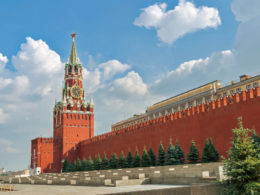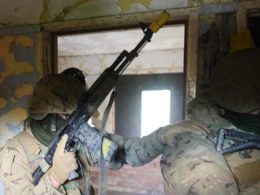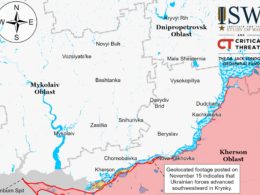Russian Defense Minister Sergei Shoigu dismissed Major General Ivan Popov, the Commander of the 58th Combined Arms Army (CAA) because of grievances about problems on the western Zaporizhzhia Oblast frontline to senior commanders, ISW reports.
The audio of Popov’s complaints, as per the ISW report, was leaked by Lieutenant General Andrei Gurulev, a Russian State Duma Deputy and former Deputy Commander of the Southern Military District, on July 12.
Popov’s grievances included concerns about the lack of Russian counter-battery warfare capabilities, the absence of artillery reconnaissance stations, significant Russian casualties from Ukrainian artillery fire, and other issues.
Popov explained that his dismissal was due to his honesty in voicing these problems, which threatened the Russian command.
“I chose to call a spade a spade in the name of his dead comrades instead of remaining in silent cowardice,” ISW cited Popov.
Russian sources had previously claimed that Chief of the Russian General Staff Army General Valery Gerasimov dismissed Popov for expressing concerns over the need for troop rotations in western Zaporizhzhia Oblast amid Ukrainian counteroffensive operations.
A source reportedly related to the Russian security services claimed that Popov announced he would appeal to Putin before Gerasimov dismissed him from his position. This may indicate that Gerasimov directly responded to Popov’s threat.
Popov’s attempt to directly appeal to Putin for support and his insubordination of Gerasimov’s command indicates a pattern of corrosive behavior that has developed within the Russian command and the Russian forces fighting in Ukraine. ISW has previously assessed that public disagreements between Russian forces in Ukraine over supplies and combat tasks and the Russian Ministry of Defense’s (MoD’s) apparent need to negotiate with subordinate commanders on these issues suggest that there are a severe chain of command problems.
Popov’s dismissal over the issue of Russian casualties and reported complaints about lack of force rotations further supports ISW’s assessment that Russian defenses in Ukraine are likely fragile. ISW has previously assessed that Russian forces lack the reserves to rotate frontline units and that without operational reserves Russian forces would have to fall back to prepared defensive positions without significant support in the case of a Ukrainian breakthrough.
Read also:
- Russia uses antiquated armor as vehicle bombs in Ukraine – UK intel
- Russian nuclear subs to skip Russia’s annual Navy Day review – British intelligence






